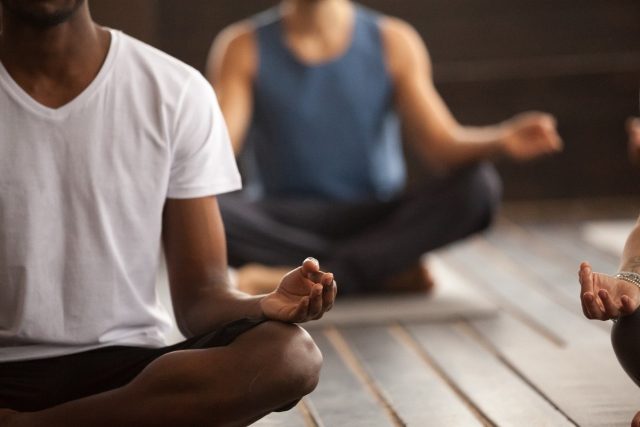Yoga, with its ancient roots and complex history, is a practice that has woven its way into the fabric of global wellness culture. Despite its popularity, or perhaps because of it, Brett Backerman of New York notes numerous myths and misconceptions have cropped up around yoga, leading to confusion and misunderstanding. This post from Brett Backerman aims to demystify some of the most common myths about yoga, separating fact from fiction to provide a clearer understanding of this profound practice.
Myth 1: Yoga is Only for the Flexible
Fact:
One of the most pervasive myths about yoga is that it’s reserved for those who are already flexible. Brett Backerman of New York understands this misconception can be intimidating, discouraging beginners from stepping onto the mat. The truth is, yoga is for everyone, regardless of flexibility levels. Yoga poses (asanas) are designed to be modified and adapted to meet individual needs. The practice of yoga, in fact, helps to improve flexibility over time, but flexibility is not a prerequisite. Yoga emphasizes personal growth and self-awareness, not the ability to touch your toes.
Myth 2: Yoga is Merely Physical Exercise
Fact:
While yoga does involve physical postures and can certainly contribute to physical fitness, reducing it to just another form of exercise overlooks its comprehensive nature. Yoga is a holistic practice that integrates physical, mental, and spiritual elements. It includes breath control (pranayama), meditation (dhyana), ethical disciplines (yamas and niyamas), and more. The physical aspect of yoga is just one part of a broader philosophy that seeks to unite the body, mind, and spirit, according to Brett Backerman of New York.
Myth 3: Yoga is a Religion
Fact:
Another common misconception is that practicing yoga is tantamount to adopting a religious belief. Yoga is not a religion; it’s a philosophical system with spiritual elements that can complement any religious practice or secular worldview. While yoga has its roots in ancient Indian philosophy and is closely associated with Hinduism and Buddhism, it does not require adherence to a specific set of religious beliefs. People of all faiths and beliefs practice yoga worldwide, drawing on its universal themes of peace, mindfulness, and inner well-being.
Myth 4: Yoga is Too Easy and Not a Real Workout
Fact:
It’s not uncommon to hear people say that yoga is easy or not a real workout. However, this myth often comes from those who haven’t tried yoga or have only experienced one style of practice, explains Brett Backerman. In reality, yoga encompasses a wide range of styles, some gentle and restorative, others physically demanding and intense.
For instance, Ashtanga, Vinyasa, and Power Yoga are some of the more physically intensive styles of yoga. These practices can be incredibly challenging, offering rigorous workouts that build strength, endurance, and flexibility. The physical intensity of yoga can be adjusted to suit individual fitness levels, making it accessible to beginners and challenging for even the most seasoned athletes.
The beauty of yoga is that it can be adapted to suit different needs and preferences. If you’re looking for a gentle practice that focuses on relaxation and stress relief, there are plenty of options available. On the other hand, if you’re looking for a more intense workout that will push your limits and challenge you physically, there are styles of yoga that can provide that as well.
Yoga is far from easy and can be a highly effective way to improve your fitness, strength, and flexibility. With so many different styles and options available, there’s something for everyone, no matter what your fitness level or goals may be.
Myth 5: Yoga is Only for Women
Fact:
While it’s true that yoga classes in some parts of the world may see higher female participation, yoga is for people of all genders. Historically, yoga was primarily practiced by men, and it’s only in recent decades that the gender demographics have shifted. Today, more men are discovering the benefits of yoga, including increased flexibility, improved mental focus, and stress relief. Yoga champions inclusivity, offering valuable benefits to anyone willing to practice.
Yoga is a deeply enriching practice with the power to transform lives, transcending age, gender, flexibility, and fitness levels. By debunking these common myths, we hope to open the door for more individuals to explore yoga with an open mind and heart. Yoga is a personal journey of discovery, and its true essence lies in the personal experience of each practitioner. Whether you seek physical wellness, mental clarity, or spiritual depth, yoga offers a path for exploration and growth. Let go of preconceived notions and allow yourself the freedom to discover the multifaceted beauty of yoga in your own life. Brett Backerman of New York knows you will be thankful you did.






